“I didn’t think this would ever happen.” states an awe struck Zack Snyder. Even the director of the recently released Zack Snyder’s Justice League can barely believe a four-hour movie, which has his name triumphantly right there in the title, is now out in the world.
Snyder has used his talents as a visual-effects wizard, a maestro of story and pace, a popcorn humanist who can find the relatable dimension of a bunch of freaks in capes and breastplates and spandex, and an artist to tie the whole thing together into an indelible big vision.
To casual movie fans, and those firing up HBO Max this week searching for something to help ride out yet another night in pandemic city, a bladder-bustingly long version of a 2017 DC superhero movie that received lukewarm reviews and is considered a box office failure seems extravagantly preposterous. The four-hour version (now known as Zack Snyder’s Justice League) is receiving much praise from those who enjoy the comic book genre of movies.
And, even if you’ve only seen a trailer to a Zack Snyder movie, you know that extravagantly preposterous is what he does best. But the story of how the Zack Snyder’s Justice League came to be is a tale of heroes and villains, of uprisings and justice practically worthy of one of those expository, “slo-mo” sequences that the director of 300 and Man of Steel has become known for.
But we’ll give you the trailer-sized version of the story here: Back in 2013, Snyder was ostensibly given the reigns of the DC Extended Universe and was supposed to direct five movies. The first was Man of Steel, Snyder’s take on Superman, which continues the dark, serious tone that Warner and DC had established with Christopher Nolan’s The Dark Knight Trilogy, which had concluded in 2012. Man of Steel was a huge commercial success, grossing around $668 million in worldwide box office. Reviews were mixed, but that’s universally the case with a Snyder movie. Zack Snyder and his wife, producer Deborah Snyder, left the production to grieve after the death of their daughter, Autumn. The studio hired Joss Whedon, whose light, humorous tone helped make many Marvel movies a success, to finish Justice League.
The Whedon version of Justice League resulted in an average superhero movie. But then rumors emerged that a longer version existed somewhere in the universe. A grassroots movement to “Release the Snyder Cut” started to gain momentum. Whedon and others were accused of terrible things that occurred after the Snyders’ exit, including the despicable shrinking of the roles of people of color, most significantly Cyborg’s Ray Fisher. And so, with the studio under new management, and a new streaming service to boost, Warner decided to green light the Snyder Cut for release on HBO Max. Snyder would do it for free and work with a budget of around $70 million dollars to finish his version of the film.
Personally, I love the “Snyder” style. I feel like I am in an action movie that is set with many cliffhanging experiences when watching his movies. I get awestruck at the storyline and action he creates as the movie plays forward. That’s just me, I will let you watch Zack Snyder’s Justice League and decide for yourself.
This film is a labor of love that was born out of the deepest of tragedies. Even if you decide not to dive into this four-hour superhero epic, at least take away this lesson from the making of Zack Snyder’s Justice League: in a time when so much of us have experienced wrongs and tragedy, sometimes those wrongs can be righted, and sometimes your biggest visions find a way to get out into the world.
Zack Snyder’s Justice League has plenty of fodder for geeking out, and Esquire did just that when they interviewed Snyder on the phone on the evening of the movie’s release.
Now, in a conversation with Esquire.com, Zack Snyder answers all about his version of Justice League:
ESQUIRE: I know your movie has an R rating, but because I’m working from home during the pandemic, I had to watch the movie with my daughters. Well, truthfully, they really wanted to see it. So I was like, why not? They’re five and eight.
ZACK SNYDER: It’s a pretty soft R as they say.
ESQ: I have to pass along a note from my five year old daughter: she wanted more Wonder Woman.
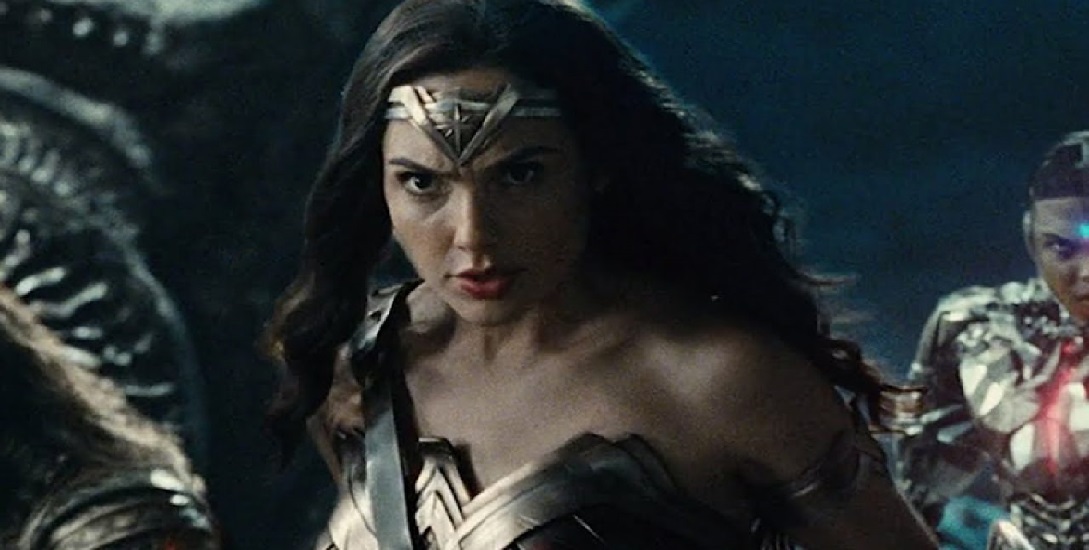
Snyder: That makes sense. She’s right to want that.
ESQ: And she also wanted me to ask you whether Flash gets the dog-sitting job.
Snyder: Oh, I don’t know that he did, because I think his resume was not great. I think there’s a line we took out where she says “You’re experienced walking dogs” and then he says, “Walking with dogs.” He did have the hot dogs in his pocket, but again, I’m not sure that’s a great way to get a job. You’re going to be feeding the dogs, hot dogs out of your pocket? Like that’s not right.
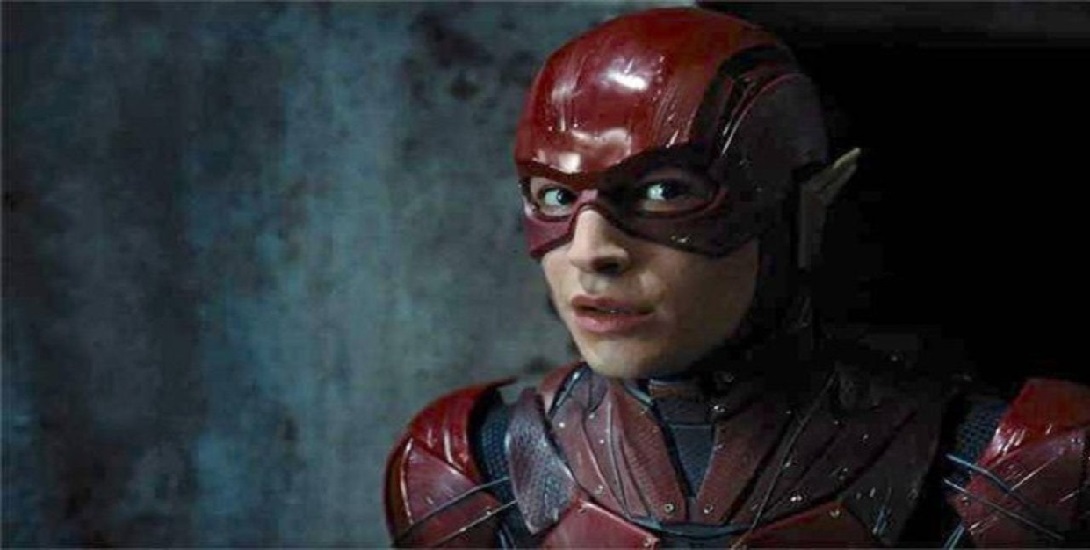
ESQ: I will pass this news along. And I have to report that the catch phrase that they glommed onto was Cyborg’s response to Wonder Woman when she asks whether he wants to save humanity: F*** the world.
Snyder: F*** the world!
ESQ: They’re now little nihilists.
Snyder: Pick up your toys. You know what? Eff the world.
ESQ: That’s what happens when you let a five and eight year-old watch a Zack Snyder movie.
Snyder: I apologize for that, but I will say that the movie’s R. So I didn’t lead you blindly into it. I’ll just say that.
ESQ: Yes, true. Dad of the year here. How does it feel that the movie is out in the world?
Snyder: It’s very cathartic. It’s like this incredible relief, to be honest. I dedicated the movie to my daughter and the thing I was most stressed out about was, frankly, that the movie wasn’t good enough. That gave me the most anxiety. But then as we finished it, I felt better about it. She was a bit of a dork, so I thought she would have really liked the movie. Regardless of whether people liked it or not, I took solace in the fact that she would have liked it. It is nice that the fans seem to really love it. That’s good news.
ESQ: You obviously went through a lot in leaving Justice League before you got to complete it. How did you feel when you got the news that you could finish this huge project?
Snyder: Well, frankly, we thought it was unbelievable. We were pretty sure that someone had made a mistake. But it also meant that we did have to do the work of finishing it. And it’s not a small amount of work.
My wife and I drank some champagne, sat outside. I have like a fire pit, and we really drank it in. And then we put our heads down and went to work for eight months or however long it’s been. I locked myself in a dark room for eight months.
It was a labor of love and I would do it again in a second. I wouldn’t hesitate. And look, we were doing it for free. I really didn’t care. I just wanted to get it, fix it.
ESQ: Have you been able to talk to the cast members and get their reaction to the film?
Snyder: They seem to love the movie and I consider those guys all my friends, and to have their support through this has been really critical. And I’m excited also to have Ray’s story be completed in the way that it is.
ESQ: Right. Ray’s Cyborg, as you’ve said before, was the heart of the movie, and what an incredible performance by him. It seems criminal that his part was cut down so much in Whedon’s version. What were your thoughts when you heard that his part was so marginalized in the 2018 movie?
Snyder: The truth is, I was unclear with the specifics of what had happened to the movie. Now I’ve told that story about Chris [Nolan] and Debbie [Snyder] watching it and coming back to tell me not to watch it, ever. I didn’t get into the specifics of what we felt like had been changed or was altered. But I did know the movie was two hours. And I knew with credits meant that it was like an hour and 50 minutes, because with these visual effects, movies have massive credits. I was like, geez, that’s got to be problematic. How could they have serviced all these characters correctly? And it turns out that they didn’t.
I’m really happy to have Ray’s story put back. And also for the climax, what Flash is able to do, really rounds out his character and gives him a real sort of cathartic end game.
ESQ: I was also struck at the similarities between Cyborg and Dr. Manhattan, was that intentional?

Snyder: It was a bit intentional. That sequence where we learn about Cyborg’s backstory is very Manhattanite. But I really love it and I love that kind of storytelling where it’s just a lot of lacing together of these images to tell a story without a lot of dialogue—just a little bit of VO. I was happy to tell Cyborg’s story that way, because if you really dig in, he’s a giant character. He’s got giant power. And that’s kind of what that sequence is about: unrealized potential. Victor Stone speaks to all of us who are suffering from some depression or self doubt—we all have this massive untapped potential within us.
ESQ: I’m going to ask some quick nerd question here, but knowing you, I’m sure you’re cool with that. What exactly happens to Silas Stone, Cyborg’s dad, towards the end of the movie?
Snyder: Oh, when he gets killed by the electron laser? I had just imagined that that thing was the hottest thing on earth. The laser generated so much heat in the chamber that it just vaporizes him eventually. But the first moments are him just kind of overheating, like being microwaved slightly from the inside out.
ESQ: So he’s not transporting to an alternate universe or anything like that?
Snyder: No. He doesn’t get to come back with massive powers but that’d be cool. I like that! I like your thinking.
ESQ: No one really ever dies in comics.
Snyder: Except for when they do.
ESQ: Except for when they do. True. What’s the story behind Superman’s black suit?
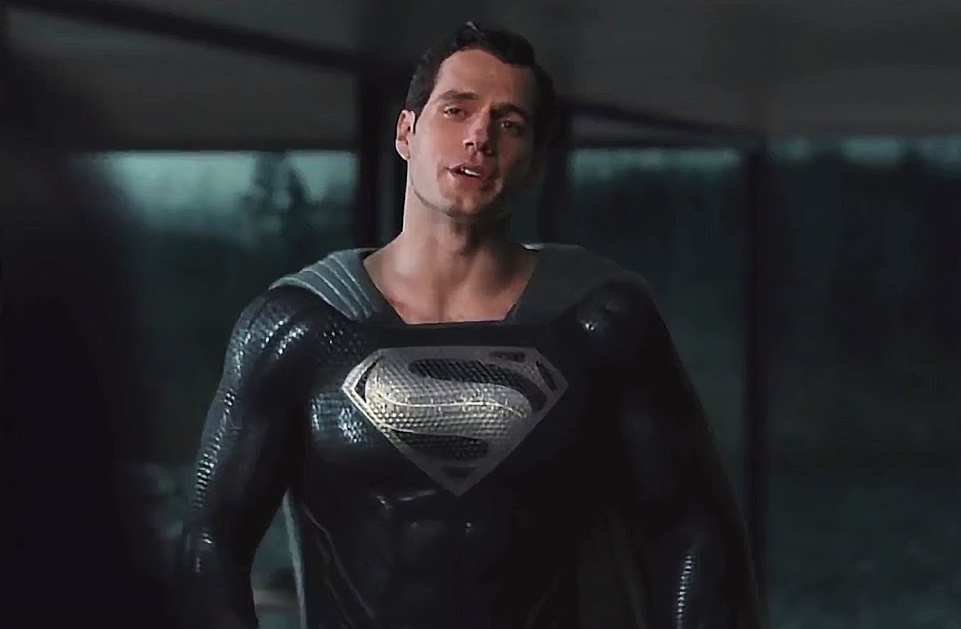
Snyder: It comes from Death of Superman of course. But I’m also into this Robert Bly book The Red, White, and Black. The white of naivety, the red of anger, and the black of humanity. I just felt like the black suit is really symbolic of that as well. But also, frankly, I flew him straight up to the sun to charge him up. I like the black suit as a practical thing of there needing to be a way for Superman to charge up quickly and be stronger than he was. So it works in a theoretical and symbolic way.
ESQ: There’s been some chatter about whether the single mom who appears in Cyborg’s vision, Linda Reed, is in reference to the obscure Golden Age character? Is it?
Snyder: You know, frankly, no, it was not. That one is not, but it’s cool. I’d do that sort of thing.
ESQ: I also love the further development of Steppenwolf. I feel like you actually have empathy for him for multiple reasons, one of which is, he has dreamy eyes now, right?
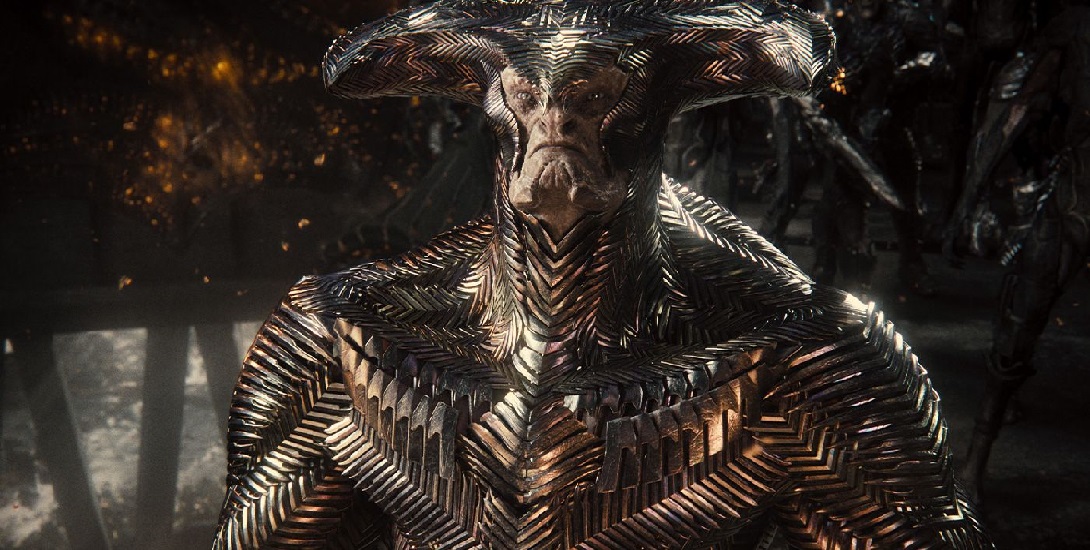
Snyder: I have no idea what happened to the original Steppenwolf. And I’m 99% positive that his eyes are different because he’s kind of scratch built. And by the way, we had tons of conversations where I was like, “We really need his eyes need to emote because I really want his story to be sympathetic.” He’s just trying to get back in Darkseid’s good graces. He fucked up a while ago, and he needs to make it right.
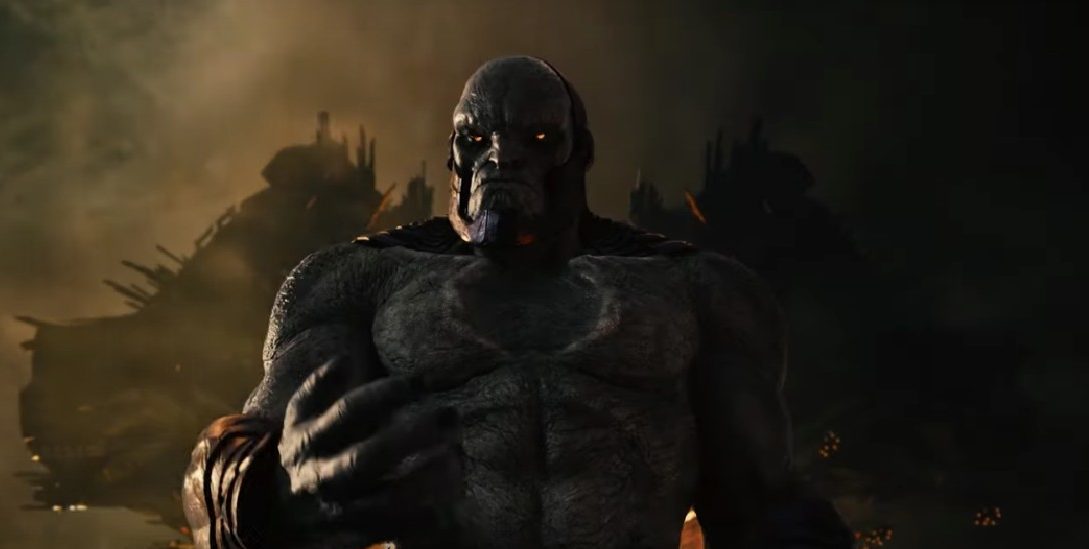
ESQ: Along with everyone else, I have a ton of questions about the epilogue too. This was entirely from a new shoot, right?
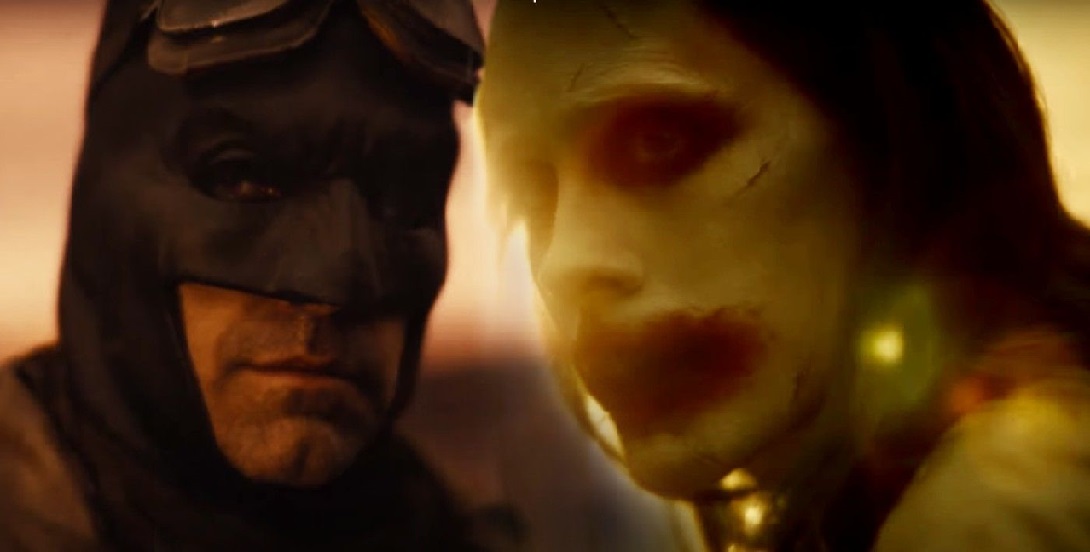
Snyder: So here’s the situation. In that whole sequence, the new is the Batman Joker scene. If this is my last DC movie, I felt it was going to be rude for me to have never gotten Batman and Joker together in a scene. And so I kind of came up with that scene. The last scene with Martian Manhunter, originally, I had shot it in England. And the dialogue was very similar, but it was supposed to be one of the Lanterns.
And then the studio had told me I wasn’t allowed to shoot anything. That there would be no film made of any kind. During production, that was a thing they insisted on. And I shot stuff anyway, of course, in my yard. And one of the things I shot was the Green Lantern scene. And then they asked me, when they saw the movie and saw that I put it in there, they’d take it out. And I said that I would quit if they tried to take it out. And I felt bad. The truth is I didn’t want the fans to not have a movie, just based on that one stand that I was going to take.
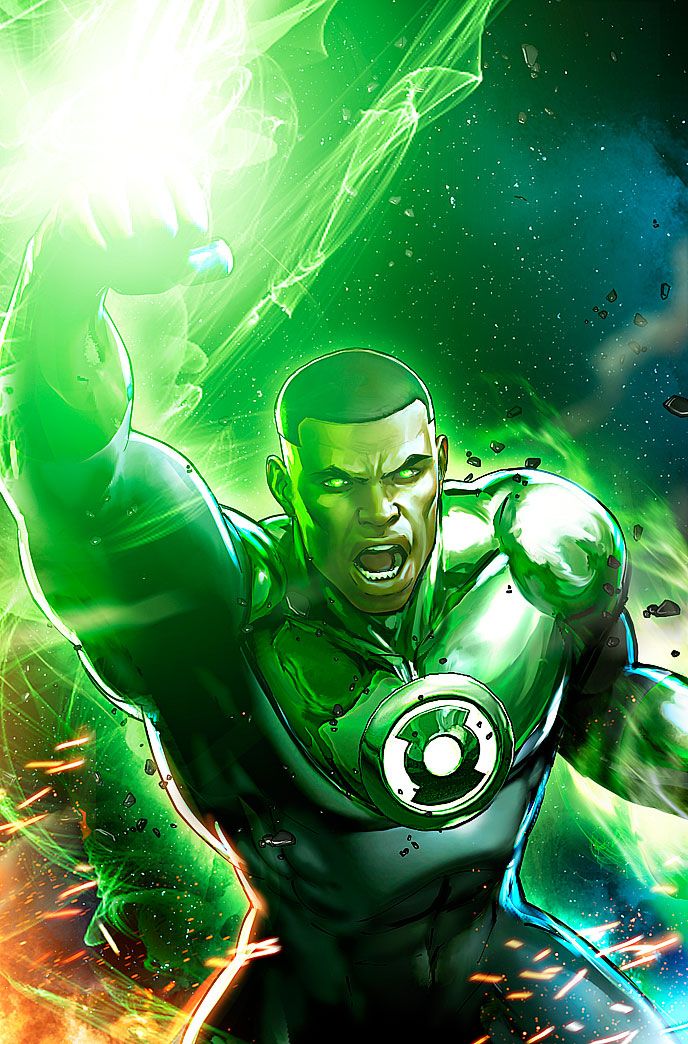
And the Green Lantern was John Stewart. And that was part of it too. I was like, I don’t want to take a person of color out of this movie. I’m not going to do it. And, but then, but I felt like having Harry Lennix’s Martian Manhunter at the end was, that was okay.
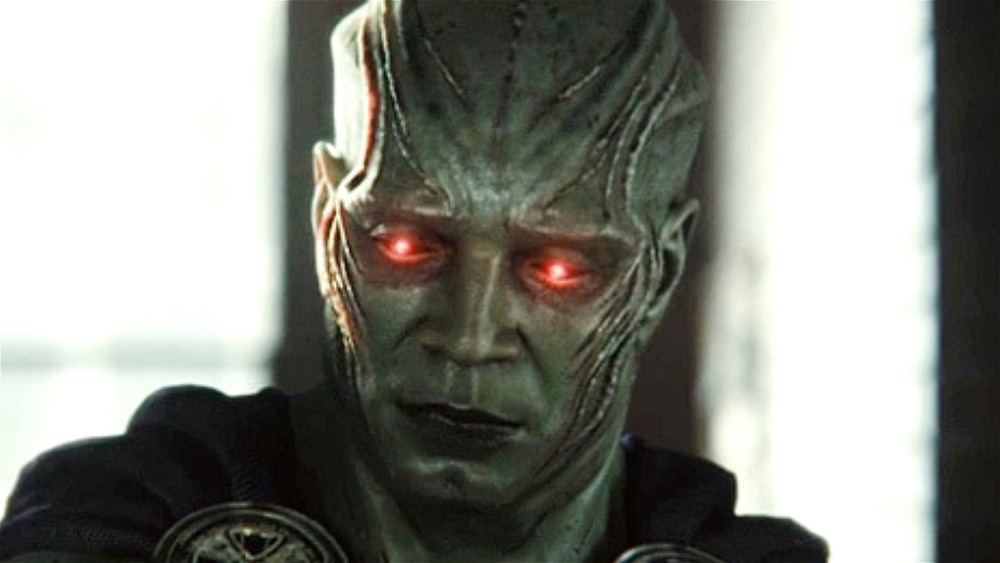
ESQ: One of my favorite lines is in the epilogue is when Joker, in response to Batman threatening to kill him says, “You don’t want to kill me, I’m your best friend. Besides, who’s going to give you a reach around?”
Snyder: It’s a solid question. Really, if you think about it.
ESQ: So I know Jared Leto can get deep into his roles. Was that an ad-lib?
Snyder: That was an ad-lib. And after he ad-libbed that he was like, “That’s never going to be in the movie.” And I go, “You watch.”
ESQ: And I know that Ben Affleck sort of stated that he was retired from acting and the role of Batman in particular. Did you kind of have to talk him into shooting another scene?
Snyder: I called him up, and I basically was just like “Listen, bro, I’ve been talking to Jared and I have this idea for a scene and I just think you guys…I think it’d be cool to see.” He was busy and he was traveling around but he didn’t really hesitate. He was like “Yeah, bud. For you, I’ll do it.”
ESQ: The epilogue sets up kind of so many possible spin-offs and sequels. Do you think that the movie will be so successful that sequels will become inevitable?
Snyder: I mean, it’s a fun thing to think about. I don’t know if it’s a reality. I know that the studio doesn’t really have any interest, clearly, in doing another movie with me. I also know that it’s a product. And the market kind of decides in the end, you know what I’m saying? But I would be very surprised if that happened. Of course, I’m surprised that this happened so it’s hard to say.
ESQ: But as you were putting this ending together, did you have the hope that sequels could happen?
Snyder: I guess it’s a careful what you wish for kind of a scenario. And I do think that it was part of the DNA of the thing to create an ending with cliffhanger. It’s the genre: a superhero movie doesn’t really have an ending. It has a chapter break, but you never want to close the book a hundred percent.
And with the amount of effort that the fans had had mustered to get this movie made, and the dedication and the money they’ve raised for suicide prevention and mental health awareness, I wanted the movie to be hopeful and optimistic. And that included the vision for future movies.
ESQ: Were there other spinoffs that you wanted to make?
Snyder: I’m very sad that I didn’t push harder to set up the Cyborg movie before we shot Justice League because I’d done a lot of work to set up Wonder Woman and Aquaman and to get those movies on their feet. And I really wish I had done that with Cyborg because he’s really on his feet at the end of the movie. He’s really ready to go. And I just thought, well, the truth is I just assumed that it was a no brainer that a Cyborg movie would be in the works. You know what I mean? It seems like so obvious.
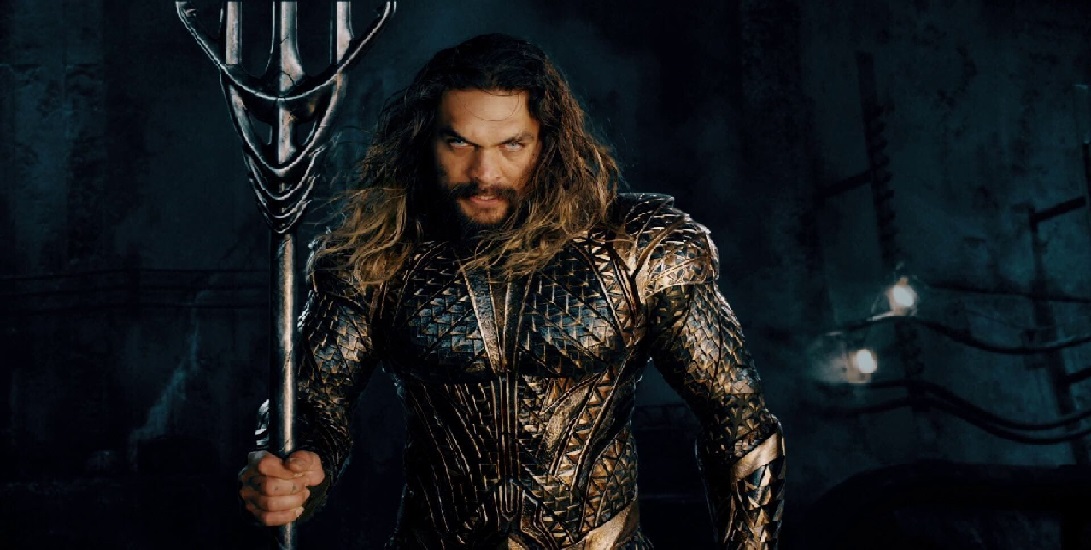
ESQ: So that’s the thing you really wanted to happen.
Snyder: I really did. And I wanted more for the Ryan Choi character. We had talked a little bit about the possibility of an Atom movie shot entirely in China. I thought that was a great idea. Remember, this was a while ago. When we were conceiving of this, it was literally the end of 2015. I was like let’s make a super hero movie set in China with a Chinese star. And Kai Zheng is really charming and I had a great experience shooting him, so it seemed like a no brainer. But I don’t know why all these things, these concepts… just think about how far down the road we’d be with all this stuff by now, you know?
ESQ: One reason why I love the epilogue so much is because you get to return to this post-apocalyptic, alternate future hellscape that Batman experiences in the Knightmare sequence in Batman vs Superman. Were you envisioning an entire movie like this?
Snyder: So basically in the alternate-future movie, we would have been in this post-Superman, Anti-Life Equation world, where the team knew that the only way to fix the world was to run Flash back and warn Bruce to save Lois. And so in that world, the movie was basically going to be about a ragtag group of Justice League members pulling off a crazy mission to steal a Mother Box from this half destroyed cathedral in Gotham and get it back to the Batcave in order to use it to power the cosmic treadmill to jump Flash back in time.
And the night before the big mission, they would have this last supper sort of reckoning, where they would all tell their stories. One of those stories was Joker telling the story of the death of Robin. And Superman, by the way, in the end, he like kills everybody. Except for Flash. Makes it just through. Jumps through time just to escape him. And there was always a fun thing that we were doing where I had this concept for time travel, where the earth has to be in relatively the same position in space. So you could only jump like once a year or you would jump into space.
This was the direct sequel. Then the third movie was going to be about after they rescue him or after they send Flash back in time. And then Batman sacrifices himself. That would be as we go into the third movie. And the third movie would have been about the battle between Darkseid and the defenders of Earth.
ESQ: I know you mentioned a Cyborg solo movie, were there other spinoffs that you were thinking of, like Martian Manhunter or Deathstroke or even like a Man of Steel II?
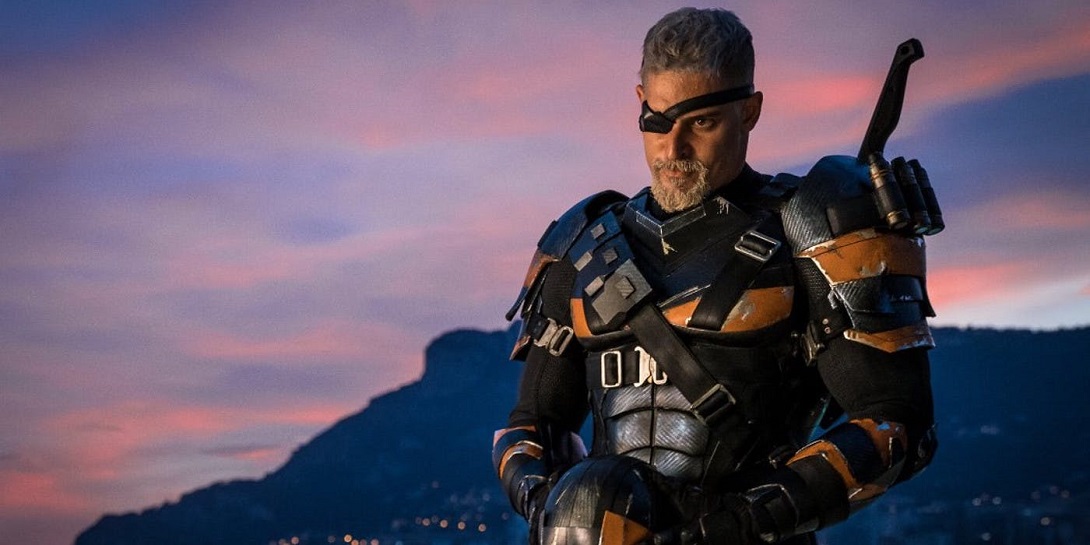
Snyder: Yeah, well I had just assumed that the final movie was going to be very much a Superman movie. Like the final chapter was going to be a large percentage of Superman to just bookend the whole thing. Because if Batman died, it would have very much fallen on Superman to be the de facto leader. By the way, at that point, Wonder Woman would have been made queen of the Themyscira and she would be leading the warriors of Themyscira into battle against Darkseid herself. And Arthur would be leading the armies of Atlantians. And Superman basically is going to be the head of the Justice League and the Armies of Men. And so Superman would have gone from this kind of berserker Superman to a benevolent Superman.
Superman has the hugest arc of everybody because he goes from like the main villain to like the main hero. And that struck me as just really cool and fun and like a really interesting trajectory for him. Because I think traditionally, Superman is one of those characters that people don’t see as changing a lot. You know what I mean? He’s kind of a rock that everyone props against and I just thought, how cool would it be to make our Superman the character that goes on the most incredible journey.
ESQ: And did you have stories of how Aquaman and Harley Quinn and Lois Lane died? Were you going to shoot those deaths or were they going to be explained through dialogue?
Snyder: No, we were going to shoot those. And they would have had elements of what Cyborg sees.
ESQ: So, in Justice League, there is a quick shot of a pregnancy test in Lois Lane’s bedside drawer. Is Lois Lane pregnant or is she not pregnant?
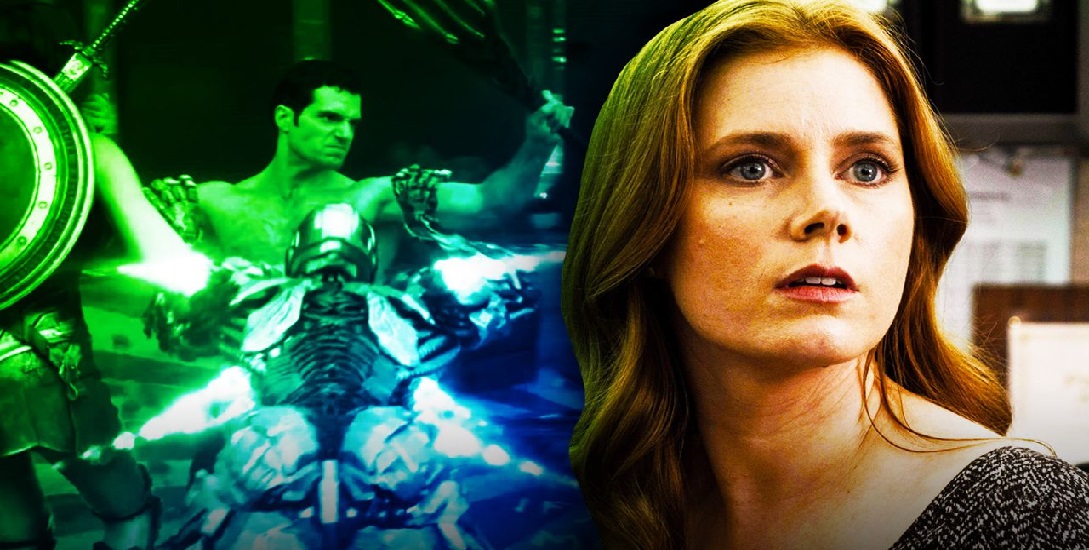
Snyder: She’s definitely pregnant.
ESQ: So when you see them moving back to the house and Batman, briefly before a cut, says congratulations to Clark Kent, that’s in reference to the pregnancy?
Snyder: Yeah. You see, I always wanted Barbara Gordon to come in the movies. Commissioner Gordon would be on the way out, and we’d have Barbara starting to play a bigger role. My idea was that after Batman sacrificed himself, there would be a window where there was no Batman, and I thought Barbara could fill that until the child of Superman and Lois, who has no powers, would become Batman when he was of age.
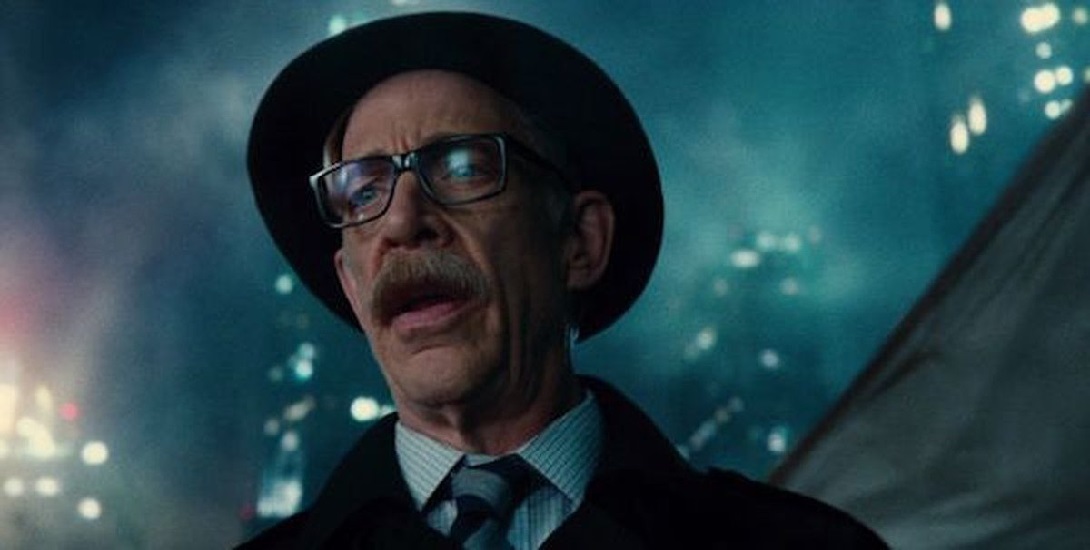
ESQ: Whoa.
Snyder: That was the idea anyway. It just seemed to make sense. Then, of course, Barbara could have been his mentor, but who knows? That’s all just… see now we’re just wishful thinking.
Zack Snyder’s Justice League premiered March 18 on HBO Max in the US and elsewhere worldwide. It is also the latest cinematic experience from DC since Wonder Woman 1984 premiered last December on HBO Max. It stars Henry Cavill, Gal Gadot, Ben Affleck, Ray Fisher, Ezra Miller, Jason Momoa, Amy Adams, Connie Nielsen, Robin Wright, Diane Lane, Ciarán Hinds, Joe Manganiello, J.K. Simmons, Willem Dafoe, Jesse Eisenberg, Jeremy Irons, Samantha Win, Kiersey Clemons, Harry Lennix, Joe Morton, Ray Porter, Jared Leto, Amber Heard, and Peter Guinness.